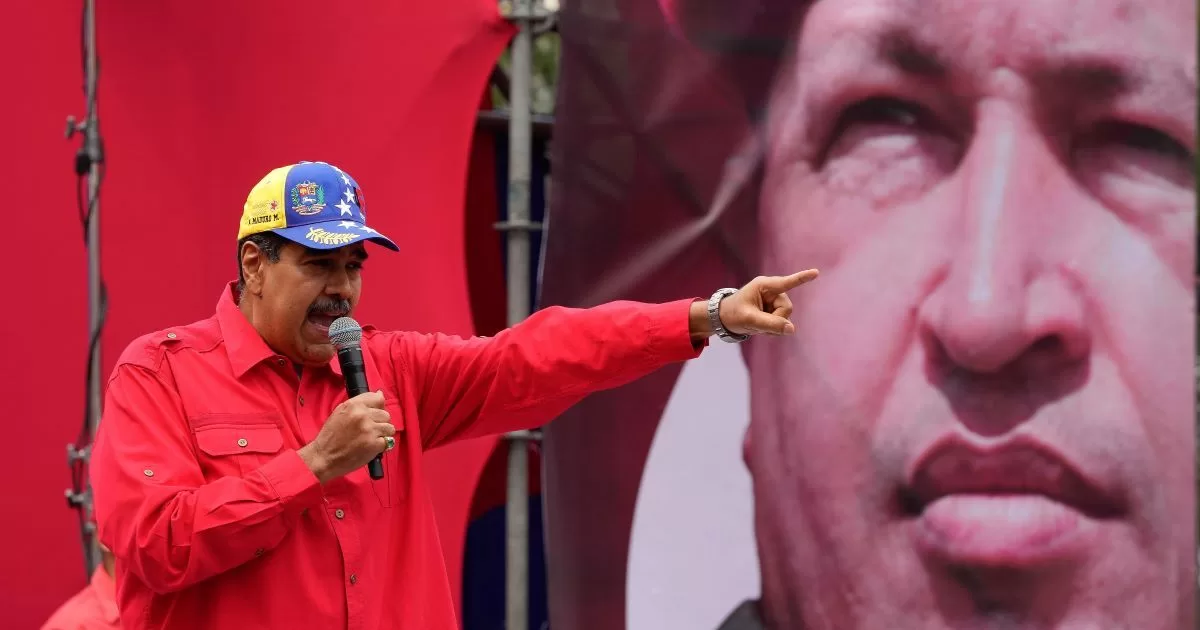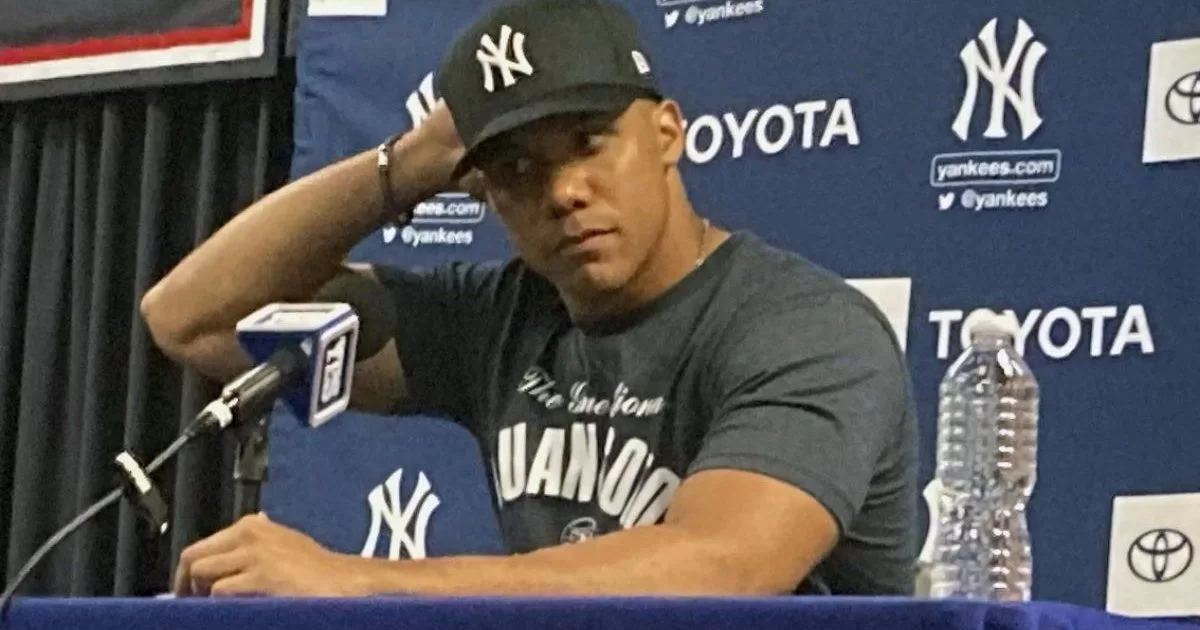After 25 years of Chavismo, the South American country, which was one of the richest in the region, is experiencing an economic crisis that reached triple digits between 2017 and 2021 and a serious humanitarian crisis motivated by the collapse of the hydroelectric and educational systems. and health; as well as a state of political and institutional chaos, with all the powers of the State controlled by the regime.
“In Venezuela there are a number of conditions that tell you that the area of freedom, of respect for rights, of having someone to defend your rights, does not exist. The Supreme Court of Justice, the Moral Power and the Electoral Power are totally subject to the wishes of Nicolás Maduro. The Lord rules by just opening his mouth“, says the doctor in Political Sciences, José Vicente Carrasquero, university professor and expert in electoral campaigns and public opinion, in conversation with DIARIO LAS AMERICAS.
This co-option of the institutions, he mentions, began in 2002 with Chávez (died in 2013), who, with the abstention of the Venezuelan opposition in the 2005 legislative elections, won a large majority in the National Assembly (AN), “subject to his designs”which allowed him to “create a State tailored to his needs,” where the powers were appointed by him or the ruling party.
“If there was one thing that characterized Chávez, it was not precisely that he was a democratic guy. Chávez was an authoritarian guy, who also did not like to be contradicted. And That authoritarianism was what Maduro inherited”, maintains the expert.
State violence
Maduro, a humble bus driver, with no education or training beyond the communist education he received in Cuba in the 1980s, became Chavez’s “heir” in 2013, and Chavez appointed his successor in December 2012, during his last public appearance, prior to a trip to Cuba.
After being elected in April 2013, with narrow results, questioned by the opposition, Maduro formally assumed the reins of a Venezuela that was beginning to pay the bills for oil waste, ushering in an era of “state violence”sparked by the anti-government protests of 2014, and intensified in 2017 and 2019.
“Every time there was a protest, that protest was violently reduced; an unusual violence, never seen in Venezuela, that led to submission through fear,” Carrasquero points out.
Since 2014, he says, torture, forced disappearances and extrajudicial executions have been reintroduced in the country. “You cannot call that authoritarianism, you have to call it what it is called: dictatorship“, he asserts.
In Venezuela, since 2014, more than 10,000 extrajudicial executions, 250 murders in the context of demonstrations and more than 1,650 cases of torture, according to the NGO Provea. Furthermore, more than 15,000 citizensmost of them, with forced disappearances, currently having around 300 political prisonersaccording to the NGO Foro Penal.
“Who has been tried for murdering students? Who has been tried for forced disappearance? “Who has been tried for extrajudicial executions?” Carrasquero questioned.
State terrorism
In the last 10 years, Maduro has based his power, in addition to the control of institutions, on the “State terrorism” as a mechanism to sow fear in the population, impoverished by erroneous economic policies.
In a country where the minimum wage does not reach $4 a month and the basic food basket exceeded $523 by May, according to the CENDAS research center, citizens became dependent on deficient food packages and bonuses. between 3 and 60 dollars, at the exchange rate, provided monthly by the regime.
Faced with this scenario, Chavismo implemented a “mechanism of domination” that forced Venezuelans to provide support. “As I make people poorer, I make them dependent on me. So, people are afraid that they will take away their CLAP, the ‘B’ part they were assigned, or they will throw them out of work because there is nothing to defend it, nothing to assert your right. Your right is not a right, but It is a mechanism of domination ”, he notes.
Following the electoral defeat in the 2015 legislative elections, the ruling elite opted for a flawed process in 2018 to guarantee the reelection of Maduro, who was not recognized by the opposition and more than 60 countries, including the United States and members of the European Union, which recognized the opposition leader Juan Guaidó as interim president from January 2019 to January 2023.
The transition
This year, with the increasing leadership of Maria Corina Machadoelected candidate in the opposition primaries, the regime intensified its repressive and persecutory policy against the leader, first with her political disqualification and, later, with the arbitrary detention of at least 10 members of the Campaign Command With Venezuela.
“The regime knew that confronting María Corina Machado was guaranteeing a unifying electoral defeat (…) They persecuted her with the thesis that, if she does not participate, they would repeat a process equal to that of 2018, in which the majority opposition, with ability to organize, I was not going to participate,” he says.
However, the opposition remained united and managed to formalize the candidacy of Edmundo Gonzalez Urrutia. This, Carrasquero continues, caused Chavismo to fall into the “despair” that it currently demonstrates, with scenarios of conspiracy, sabotage and fake news promoted from the military high command directed to the Armed Forces, to which the unitary candidate and Machado have made different calls in accordance with the Constitution. “It is a state policy to put the Armed Forces and, therefore, together with the violence on the part of Maduro with the objective of instilling fear,” he adds.
However, fear has lost ground in the Venezuelan population, which has taken to the streets in support of the opposition candidatea. “When people see an opportunity for change, they go for it. The possibility that they can really get out of this situation makes them people let go of their fear and opt for mechanisms that can lead to a better quality of life,” he says.
Now, the South American country is going through a democratic transition process, which began, according to the political scientist, with the signing of the Barbados Agreement last October. “Venezuela is currently experiencing a process of political transition that began with the Barbados Agreement (…) They depend on the Agreement to breathe, it has Chevron working for them, they have allowed them some openings in the oil area and that is what It will allow them to negotiate their tomorrow, when they lose the election on July 28,” he emphasizes.
@ebritop22



